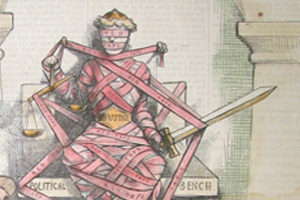First, the good news: The more than 300 lawsuits stemming from the BP oil spill in the Gulf of Mexico will be heard by a New Orleans judge. The oil giant had initially lobbied for the cases to be heard in Houston, Texas, where it might get more sympathy than it would in the region most affected by the spill. Houston also happens to be the home of BP’s US corporate headquarters.
“Without discounting the spill’s effects on other states, if there is a geographic and psychological center of gravity in this docket, then the Eastern District of Louisiana is closest to it,” the Judicial Panel on Multidistrict Litigation wrote in its decision on where to hold the hearing.
That the cases of all those seeking claims against BP will be heard in the region most impacted is a big win for plaintiffs. The 300 cases already is probably just the beginning; we can probably expect many more cases in the coming months.
And now, the slightly less-good news: US District Judge Carl Barbier will handle the cases. Barbier has held bonds in oil companies, including several companies involved in the BP case. Barbier, a Clinton appointee, has been on the federal bench for 12 years. He’s a native of New Orleans, and he attended Southeastern Louisiana University and Loyola University New Orleans School of Law. But according to his most recent financial disclosure form, until recently Barbier held bonds in Transocean and Halliburton, two companies with connections to the disaster that have been named in some of the suits.
I don’t intend to knock Barbier in particular for these connections. He sold off his holdings in those companies after taking on the case to avoid the appearance of a conflict of interest. His selection has been praised by legal experts, and the panel that selected him has said that it is “quite comfortable with its choice” despite the ties. But perhaps the most telling aspect of the case is how hard it was to find a judge that didn’t have some sort of conflict of interest in the cases. As the The National Law Journal reports:
Only four New Orleans-based federal judges remained available to hear the cases; the others were ineligible because of their investments in the oil and gas industry or personal connections with the attorneys involved.
This is, of course, just the most recent evidence of how hard it is to find a court or a judge not tainted by oil interests. The judge who threw out the moratorium on offshore drilling has been criticized for not recusing himself from the case, given that he has had financial ties to the oil industry, including one of the companies directly involved in the Deepwater Horizon disaster. The appeals court that heard the moratorium case had quite a few ties to the oil industry, too. As we’ve pointed out before, it’s hard to find a judge in the Gulf that doesn’t have some kind of ties to the industry. In the region, 37 of 64 federal judges have some oil sector connection.
This leads to a troubling question: Might Barbier be the best judge that plaintiffs in the Gulf spill cases can hope for?













